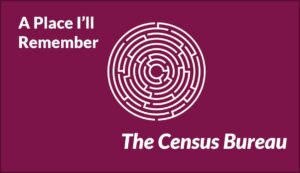 It’s easy to forget something that is in fact foundational to your personal and professional life, so this month I’m taking a moment to formally recognize and remember The Census Bureau. Along with the Bureau of Labor Statistics, data originating from the Census Bureau underpins site selection research and economic and community development work. Those of us working in this field are the canaries in the coal mine, likely far more aware than the average American of the importance of the integrity and availability of this information and the first to be impacted when it is at risk. And this canary is concerned.
It’s easy to forget something that is in fact foundational to your personal and professional life, so this month I’m taking a moment to formally recognize and remember The Census Bureau. Along with the Bureau of Labor Statistics, data originating from the Census Bureau underpins site selection research and economic and community development work. Those of us working in this field are the canaries in the coal mine, likely far more aware than the average American of the importance of the integrity and availability of this information and the first to be impacted when it is at risk. And this canary is concerned.
I’m not a lawyer, so I’ll skip the constitutionality issues and stick my to thoughts on the “assuming it happens” consequences.
The recent upheaval at the Bureau of Labor Statistics is in itself alarming. Now at the Census Bureau, the combination of staff disruption, funding uncertainty, and the administration’s push to impose a citizenship question, among other changes, have many experienced experts warning that there will be significant implementation, accuracy, and follow-on consequences.
Multiple senior executives and other staffers involved in planning and executing the census, including the Chief Information Officer, have departed in recent months.
Plans call for fewer census workers and more digital data collection. While there are debates around whether this is a modernization or a reaction to staff shortages, the reality is that digital access and adoption is not evenly distributed in the United States.
And, back to that citizenship question, data experts who have been speaking out since the first attempt to insert this question in the 2020 census believe it will result in undercounting, due in part to the reluctance of mixed-status households to participate. According to one source, fwd.us, 11.3 million U.S. citizens and another 2.4 million Lawful Permanent Residents live in mixed status households, and that likely means an undercount of those citizens. For reference, the largest numbers are believed to be in states with large immigrant populations such as Texas, Florida, California, and New York.
So take a moment and think about doing your job without this data, or without data you have confidence in. Then go have a drink or do some deep breathing. I’ve got a phone call or two to make and a letter or two to write.
Do your own research or check out some of my sources:
Brain Drain at the Census Bureau . . .
10.6 Million Americans Live with an Undocumented Immigrant
Citizenship Question Risks Accuracy of 2020 Census
(there was an attempt to insert this question into the 2020 census)
Citizenship Question is Wasteful and Harms Texans
AFL-CIO Letter Opposing Citizenship Question
New Study Quantifies how Citizenship Question would hurt Census accuracy (2025)
